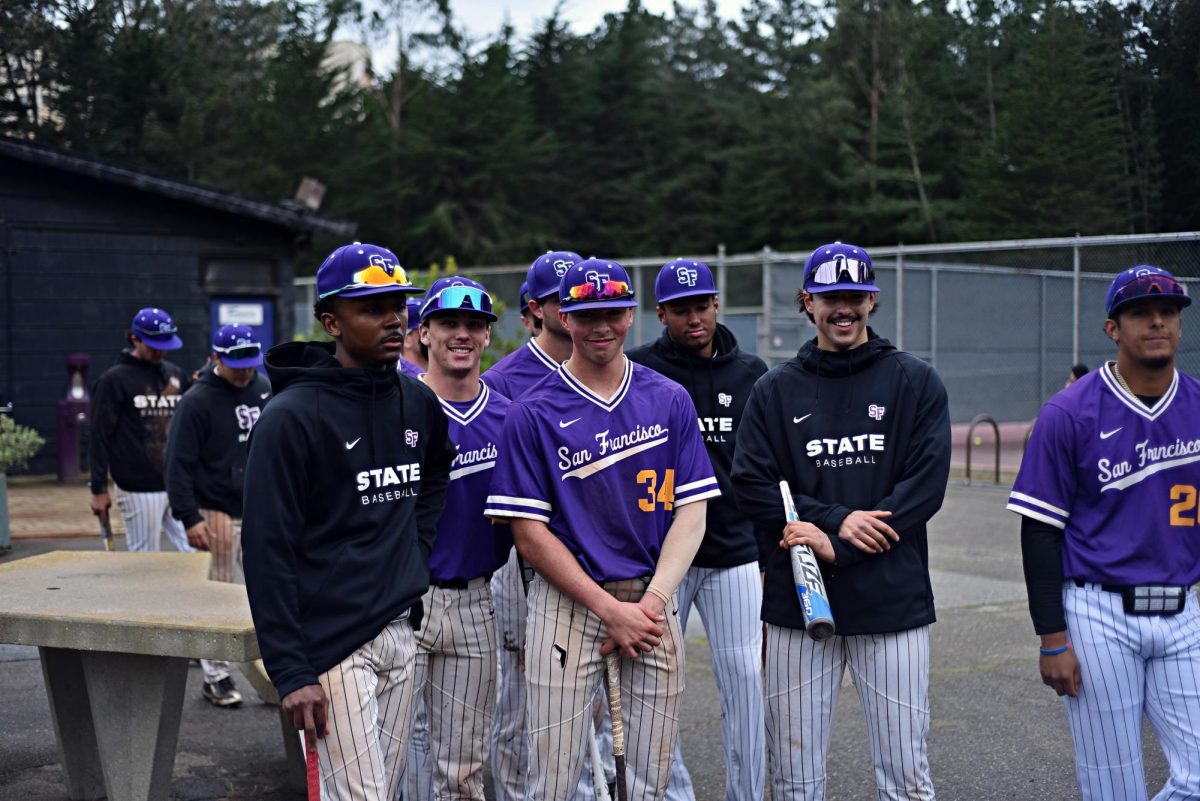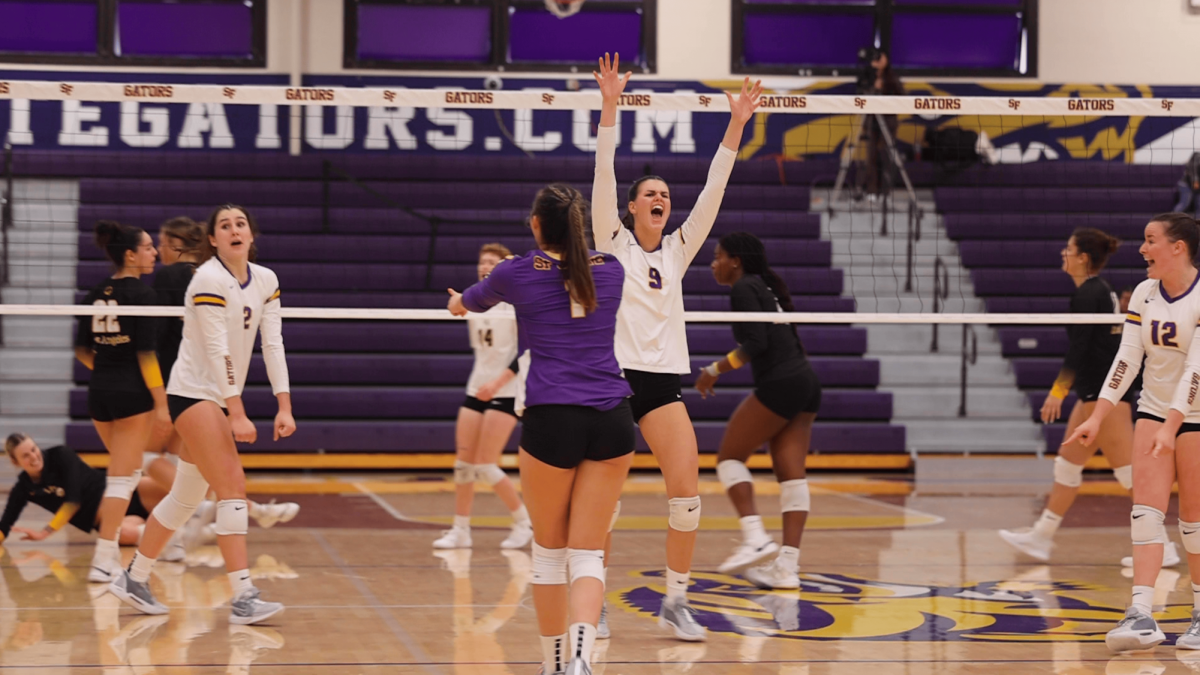When the game is on the line and the pressure is on from the opposing team, trusting teammates could be the difference between a win and a loss. Daily practices can help prepare an athlete for competition, but communication between teammates can enable them to succeed.
Non-sporting social events can be crucial for developing team camaraderie and strong relationships, which can enable athletes to push each other and perform at their peak during competition. Some of SF State’s collegiate teams have found social gatherings develop communication skills, generating greater trust for a more cohesive team on-and-off the playing field.
“Once you start to get to know another person, you understand them more and become more tolerant and open” said Cara Spence, a junior and softball player. “We really want to play for each other rather than play for yourself.”
Athletes’ lives are hectic between classes, training and competitions, which can limit their social lives. By spending the majority of their week together, relationships between team members extend beyond a typical friendship.
“We’re becoming more focused on our goals, there’s definitely these constant people around you who have the same ideas and goals,” said Brian Trejo, junior cross-country runner. “We’re all focused on what we want, have the same mentality.”
Trejo, who frequently runs eight to 10 miles a day with his teammates, maintains the importance of extensive social interaction for solid team chemistry.
“Hanging out, getting to know them and becoming friends with them definitely adds a whole other dimension to just running with robot types of people,” Trejo said. “If you can’t trust them outside of the sport, you won’t be able to trust them inside of the sport.”
Trust is particularly important in cross-country because the races are so physically consuming, and motivation from teammates can be crucial when they’re tired during a long event.
“During a race, you need to know what your teammates are thinking and how mentally ‘in’ the race they are,” Trejo said. “You don’t want to let them down and they don’t want to let you down. Racing for five miles is mentally strenuous and if you know for a fact your teammates are giving it their all, then so will you.”
Senior Karen Marchan, 21, said the women’s cross-country team does a group exercise before a competition day, led by assistant coach Pete Cushman. This exercise allows runners to mentally prepare and relax.
“All the girls get into one room and we turn off the lights and then we do this meditation where we visualize the actual day of the race from the morning start to the very end and what we’ll do throughout the race and he takes us through this journey,” Marchan said. “Once it’s done, we go right to sleep and you have that process in your head so the next morning you’re just kind of prepared for it and you know what to do.”
In order to perform at their best, athletes enjoy relaxing with each other so that they can have fun with their sport, which requires so much time and work. If they can approach a matchup calmly and be fully prepared, it increases the likelihood of a victory.
“It’s an important thing for us to have things outside of softball because after awhile softball or sports in general can kind of get to be like a job. We have to have those (activities) off balance to set it off so it’s not more of a job, it’s more fun to us,” Spence said. “That’s when we succeed, when it becomes more fun rather than a job.”
Social involvement is stressed by coaches and athletes alike, but younger players can sometimes feel disconnected from teammates in the beginning. Even with social outings and long hours of practice together, it’s typically up to new recruits to initiate themselves within the group.
Marchan, a Latino studies major, said the track and field team’s age gap hindered her from getting to know her teammates when she first started as a freshman.
“My freshman year, I was one of the youngest people, and there were a lot of older people. I felt kind of separated from that group. Age does make a difference,” Marchan recalled. “I wasn’t sure if they’d want to hang out with a younger person.”
As new women joined the team, Marchan gradually got more acclimated and and began to spend more time outside of the sport with her teammates. This helped her think in a team mentality and motivate her teammates to succeed.
“Throughout the year I just progressively got better and better, just hanging out doing more stuff, bonding moments, stuff like that,” Marchan said. “That’s the more important part for me, having that support as a whole when we get together and compete, that’s the best part.”
Athletes rely on each other to be accountable both in-an-out of competition. Teammates must foster strong connections in order to stay focused on winning and maintain relationships.
“We are in a college environment where we’re not with our family, so this becomes your family,” Marchan said.






